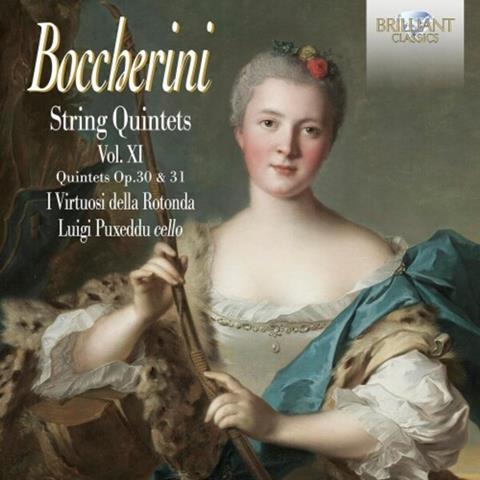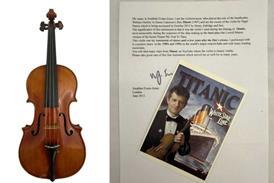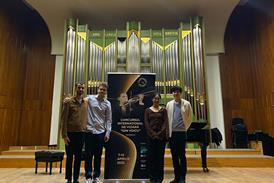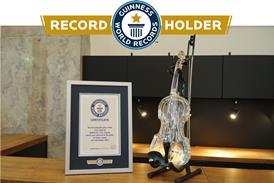Much to admire in this latest instalment of quintets

The Strad Issue: October 2024
Description: Much to admire in this latest instalment of quintets
Musicians: I Virtuosi della Rotonda (Federico Guglielmo, Alessia Pazzaglia violins, Davide Zaltron viola, Riccardo Giovine cello) Luigi Puxeddu (cello)
Works: Boccherini: String Quintets vol.11: opp.30 and 31
Catalogue number: BRILLIANT CLASSICS 95203 (3 CDs)
Is ‘Boccherini’s Minuet’ still his greatest hit? Certainly if you search for the composer on the online score repository IMSLP, the Minuet’s parent work (the Quintet in E major, op.11 no.5 G275) is there at the top of the list. Still, there has to be more to a composer who wrote at least a hundred string quintets besides this one and as many chamber works for other combinations.
The two sets of quintets recorded here both appeared in 1780 but there the similarity ends. The works of op.30 were designated ‘quintettini’ and generally consist of two brief movements, the second always a minuet. These are pleasant diversions, most of the interest given to the first violin, although lower instruments occasionally come to the fore in trios: viola and cello duetting over a cello bass in no.4, for example. The set reaches its climax in no.6, known as ‘La musica notturna delle strade di Madrid’; if you can’t get enough of its imitation of bells, the tipsy (and tipsily played) Minuet of the Blind, Spanish street songs and eleven variations on the Retreat, it’s included here twice, since Boccherini revised it some years later.
Read: 5 reasons Boccherini is actually worth getting to know
Read: Double Acts: actor Russell Crowe and violinist Richard Tognetti
The op.31 quintets are more fully rounded demonstrations of Boccherini’s craft. You can hear in these four-movement works why their composer might have found himself mocked as ‘Haydn’s wife’: while the music may superficially seem to resemble the Austrian’s, there’s a gentle lyricism to it as opposed to the pithiness and concentration of Haydn’s themes. Boccherini’s phrases come over a touch more foursquare, too; that said, there’s no denying his natural way with the gamut of string sonorities, with the pair of cellos exploiting the instrument’s versatility as both bass and melody instrument. The quartet I Virtuosi della Rotonda and guest cellist Luigi Puxeddu respond to the composer’s boundless imagination in performances that are clearly well-prepared, responsive and tonally wide-ranging within a vibrato-lite palette.
DAVID THREASHER



































No comments yet